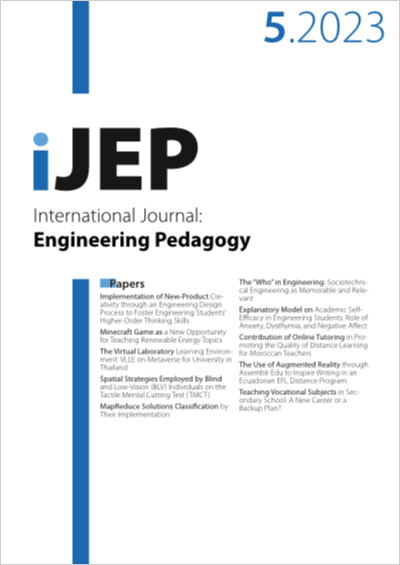Contribution of Online Tutoring in Promoting the Quality of Distance Learning for Moroccan Teachers
DOI:
https://doi.org/10.3991/ijep.v13i5.34047Keywords:
online tutoring, tutor, Distance Learning, Moroccan teachersAbstract
This paper aims at highlighting the contribution of online tutoring to the quality of distance learning (DL) and its effect on the progress and success of learners. The aim is, therefore, to judge the role of the tutor and the effect of his or her intervention on satisfying the real needs of Moroccan teachers in terms of learning during continuous training in DL mode. This study is grounded on a literature review regarding the effectiveness of tutoring and the qualitative analysis of data collected from a series of semi-structured interviews with actors (N=20) involved in the DL of Moroccan teachers. This study was achieved by the analysis of the results of a questionnaire returned by teachers (sample n=180) who were beneficiaries of the DL entitled “Communication in the Classroom,” which was provided by the Distance Learning for Students, Teachers and Professionals Association (FADEEP). The results emphasize the importance of factors relating to the effectiveness of tutoring in the quality of the DL and, more particularly, to the relevance of the tutor’s answers and his or her availability on the platform—and consequently, in the success of the learner—in addition to the material and technical, pedagogical, organizational, socio-political, and socio-cultural factors and factors linked to the learner of course.
Downloads
Published
How to Cite
Issue
Section
License
Copyright (c) 2023 abdelmajid tahiri, Ahmida Chikhaoui, Jalal Assermouh, Mohamed Halim , Samiha Benfares

This work is licensed under a Creative Commons Attribution 4.0 International License.



